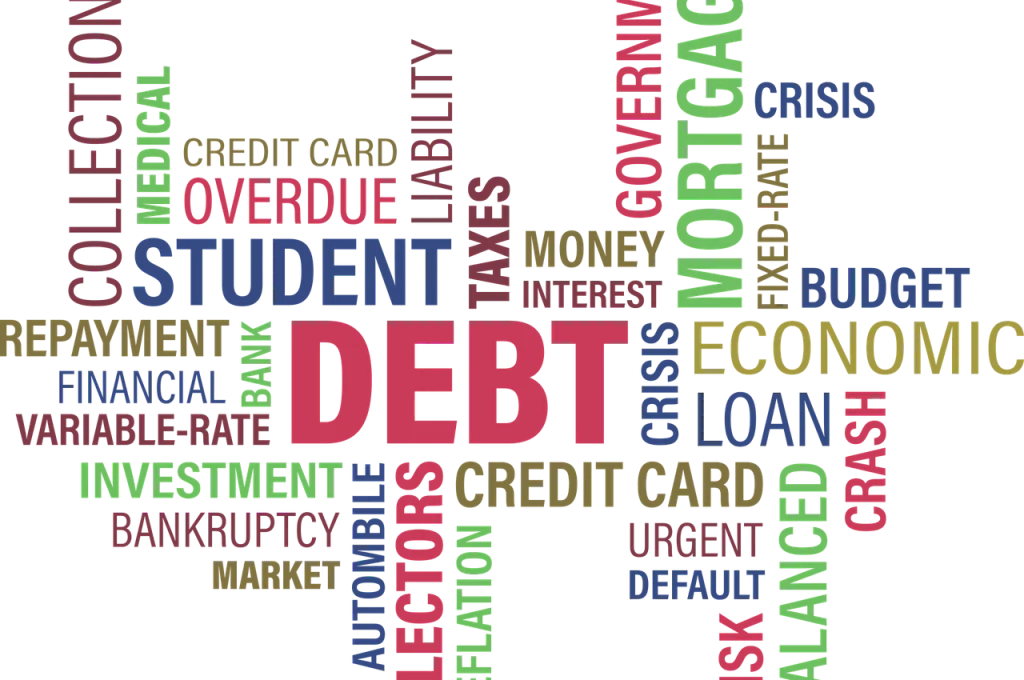Student loan unsecured debt refers to consumer debts not backed by collateral. Repayment terms for these loans assume borrowers will repay the total amount. Hard credit pull may be required to obtain these loans. These loans, commonly taken by undergraduate students, are based on the creditworthiness of the applicants and do not assume borrowers to provide assets as security. The loans are specifically designed for consumer debts and have flexible repayment terms. However, obtaining unsecured student loans can be more challenging without a strong credit history. Understanding the nature of student loan debts, both private and federal, is crucial for undergraduate students seeking financial assistance for education. By comprehending the intricacies of these loans, individuals can make informed decisions when considering options from lending partners like CommonBond and Splash Financial, both offering welcome bonus offers to borrowers in need.
Understanding the Differences: Student Loan vs. Personal Loan
Purpose and Usage
Student loans are specifically designed to finance educational expenses, such as tuition fees, textbooks, and living costs during college or university. On the other hand, personal loans can be used for various purposes, including debt consolidation, home renovations, or even funding a vacation.
Collateral and Interest Rates
Student loans are generally unsecured debts. This means gborrowers do not need to provide assets as collateral to secure unsecured loans, home equity loans, private loans, or private student loans. In contrast, personal loans may require collateral in the form of an asset like a car or house.
Interest rates can vary between these two types of loans. Student loans often have lower interest rates than personal loans since the government or educational institutions back them. Personal loans from banks or other lenders may have higher interest rates due to their unsecured nature.
Repayment Terms and Eligibility Criteria
Repayment terms for student loans typically offer more flexibility compared to personal loans. Federal student loan programs often provide options for income-driven repayment plans and loan forgiveness programs based on specific criteria. Private student loan lenders also offer various repayment options tailored to students’ financial situations.
Eligibility criteria for student loans mainly depend on factors such as enrollment status and financial need. Personal loan eligibility criteria typically revolve around creditworthiness and income verification.
Understanding the distinctions between student and personal loans is crucial for borrowers when making informed decisions about their financing options. Whether you’re a college student seeking educational funding or a consumer looking for versatile financing solutions, knowing the differences will help guide you down the right financial road.
Determining Secured or Unsecured Status of Student Loans
Federal student loans are considered unsecured, meaning they do not require collateral. Unlike secured loans backed by an asset, such as a car or a house, federal student loans are based on the borrower’s financial need and eligibility. This means that even if you default on your federal student loan payments, the government cannot seize any specific asset to recover the debt.
On the other hand, private student loans can be either secured or unsecured, depending on the lender’s requirements. The terms and conditions provided by lenders determine whether a personal student loan is classified as secured or unsecured. It’s essential for borrowers to carefully review their loan agreements to understand if their specific loan falls into either category.
Some lenders may require collateral for qualifying loans, particularly from borrowers with limited credit history or lower credit scores. This is because unsecured loans, such as personal loans, may have stricter eligibility criteria. In these cases, the loan would be considered secured because it is backed by an asset that can be seized in case of default. However, many lenders also offer unsecured private student loans to creditworthy applicants who meet their qualifications.
To determine whether a private student loan is secured or unsecured:
-
Check the lender’s requirements: Some lenders clearly state if collateral is required for certain types of loans.
-
Review the terms and conditions: Loan agreements should specify whether collateral is necessary.
-
Consider your credit profile: Lenders may use your credit score and history to assess whether collateral is needed.
-
Consult with the lender: If there is any confusion about the status of your loan, reach out to your lender for clarification.
Interest Rates and Tax Implications of Student Loan Debt
Interest Rates
Interest rates on federal student loans are usually fixed, meaning they stay the same throughout the life of the loan. These rates are typically lower compared to private student loans. On the other hand, personal student loan interest rates can vary depending on factors such as the borrower’s credit score and chosen repayment term.
Tax Implications
There is some good news for borrowers. The interest paid on qualified student loan debt may be tax-deductible under certain circumstances. This means borrowers can deduct some of their interest payments from their taxable income when filing their taxes.
However, it’s important to note that not all borrowers will qualify for this deduction, especially if they do not meet the loan eligibility criteria or have a qualifying loan. Additionally, those considering student loan refinance should know the specific requirements for loan disbursement. Particular criteria need to be met to claim the deduction. Borrowers should consult with a tax professional or use online resources like the IRS website for detailed information regarding potential tax benefits related to their specific situation.
Dischargeability and Bankruptcy Options for Student Loans
Discharging student loan debt through bankruptcy can be challenging, but it is not entirely impossible. Generally, student loans are considered unsecured debts that are not quickly released unless the borrower can demonstrate undue hardship. However, the criteria for proving undue hardship may vary depending on the jurisdiction.
Undue Hardship: A Legal Standard
Proving undue hardship is no walk in the park. It requires meeting strict criteria set forth by the bankruptcy code and convincing a bankruptcy judge that repaying the student loan would impose an undue burden on the borrower’s financial situation. This standard is often challenging to meet and typically involves demonstrating that:
-
The borrower cannot maintain a minimal standard of living while repaying the loan.
-
The borrower’s financial difficulties are likely to persist over an extended period.
-
The borrower has made reasonable faith efforts to repay the loan.
Exploring Alternative Options
Given the difficulty of discharging student loan debt through bankruptcy, it may be more feasible for borrowers struggling with their loans to explore alternative options. These options include income-driven repayment plans or loan forgiveness programs. Here are some key aspects to consider:
-
Income-driven repayment plans adjust monthly payments based on a percentage of discretionary income.
-
Loan forgiveness programs offer relief after meeting specific requirements, such as working in public service or teaching in low-income areas.
-
Some federal loans may offer forgiveness after making consistent payments for 20 or 25 years.
While discharging student loans through bankruptcy remains challenging, exploring alternative options might relieve borrowers facing overwhelming debt burdens.
Consequences of Not Paying Unsecured Student Loan Debt
Are you late on your unsecured student loan payments? Well, brace yourself for some serious consequences. Defaulting on these loans can wreak havoc on your financial life, especially. Here’s what you need to know:
Damage to Credit Scores
When you fail to make payments on your unsecured student loan debt, it can harm your credit score. Late fees and delinquency will be reported to the credit bureaus, resulting in negative marks that can stay on your credit report for years. This can make it difficult to secure future loans or lines of credit and may even affect your ability to rent an apartment or get approved for a mortgage.
Additional Fees and Penalties
Not only will defaulting on your unsecured student loans damage your credit score, but it can also lead to additional fees and penalties being tacked onto the outstanding balance. These fees can quickly add up, making it even more challenging to dig yourself out of debt.
Involvement of Collection Agencies
If you continue to ignore your unpaid student loan debt, collection agencies may enter the picture. These agencies are tasked with pursuing repayment on behalf of the lender. They have various tactics, including phone calls, letters, and legal action.
Wage Garnishment and Legal Action
One potential consequence of not paying back unsecured student loan debt is wage garnishment. This means that a portion of your wages could be withheld directly from your paycheck to repay the debt. If all other efforts fail, legal action may be taken against you.
Understanding the potential repercussions of defaulting on unsecured student loan debt is crucial. Borrowers must take proactive measures by exploring options such as income-driven repayment plans or seeking assistance from reputable financial advisors or organizations specializing in student loan debt relief.
Managing Unsecured Debt: Solutions and Examples
Consolidating Student Loans
Consolidating multiple unsecured student loans into one loan can simplify repayment and potentially lower interest rates. By combining all your loans, you only have to make one monthly payment instead of juggling multiple payments. This can help you stay organized and reduce the chances of missing a payment. When you consolidate your loans, you may have the opportunity to secure a lower interest rate, saving you money in the long run.
Income-Driven Repayment Plans
Income-driven repayment plans are another option for managing unsecured student loan debt. These plans adjust your monthly payments based on income, making them more manageable. They consider family size and income level factors to determine an affordable payment amount. This can be particularly helpful if you’re experiencing financial difficulties or have a low income.
Seeking Financial Counseling or Assistance
If you’re overwhelmed by your student loan debt, seeking financial counselling or assistance from organizations specializing in student loan debt management can provide guidance and support. These professionals can help you understand your options and develop a personalized plan for managing your debt effectively. They may also negotiate with lenders on your behalf to potentially lower interest rates or explore alternative repayment options.
Budgeting Effectively
Budgeting is essential for managing any type of debt, including unsecured student loans. By creating a budget and tracking your expenses, you can identify areas where you can reduce spending and allocate more funds towards paying off your loans. Consider reducing discretionary expenses like eating out or entertainment costs and redirecting that money towards loan repayments.
Exploring Additional Sources of Income
Increasing your income through additional sources can also help manage unsecured student loan debt more effectively. Look for opportunities to earn extra money through part-time jobs, freelance work, or side gigs that align with your skills and interests. Even small amounts of additional income can make a significant difference in paying down your debt faster.
Insights on Student Loan Unsecured Debt
We have also discussed dischargeability and bankruptcy options for student loans and the consequences of not paying unsecured student loan debt. Finally, we explored various solutions and examples for managing unsecured debt.
Understanding the complexities of student loan unsecured debt is crucial for individuals navigating their financial obligations. By recognizing the differences between student and personal loans, borrowers can make informed decisions about repayment strategies. It is important to consider interest rates and potential tax implications when dealing with student loan debt. Knowing discharge ability options and bankruptcy possibilities can provide valuable insights into managing overwhelming financial burdens.
As you continue your journey towards financial stability, remember to explore all available resources and seek professional advice when needed. Whether consulting a financial advisor or researching government programs that assist with student loan repayment, take advantage of these opportunities to alleviate your burden. You can pave the way towards a more secure financial future.
FAQs
Can I consolidate my unsecured student loan debt?
Yes, consolidating your unsecured student loan debt is possible through federal consolidation programs or private lenders. However, it’s essential to carefully evaluate the terms and conditions before deciding.
Are there any forgiveness programs for unsecured student loan debt?
While limited forgiveness programs are available for certain professions or circumstances (such as public service), complete forgiveness for unsecured student loan debt is rare. Explore eligibility criteria for forgiveness programs offered by federal or state governments.
How does defaulting on my unsecured student loans affect my credit score?
Defaulting on your unsecured student loans can have a severe negative impact on your credit score. It can lead to collection efforts, wage garnishment, and difficulty obtaining future loans or credit.
Can I negotiate with my student loan lenders to lower the interest rate?
Negotiating with student loan lenders for lower interest rates is sometimes possible. Contact your student loan planner for options like refinancing or income-driven repayment plans. Don’t forget to ask about any bonus opportunities.
Are there any alternatives to bankruptcy for managing unsecured student loan debt?
Bankruptcy should be considered a last resort for managing unsecured student loan debt. Explore alternative options like income-driven repayment plans, deferment, or forbearance programs provided by federal student loan servicers.


